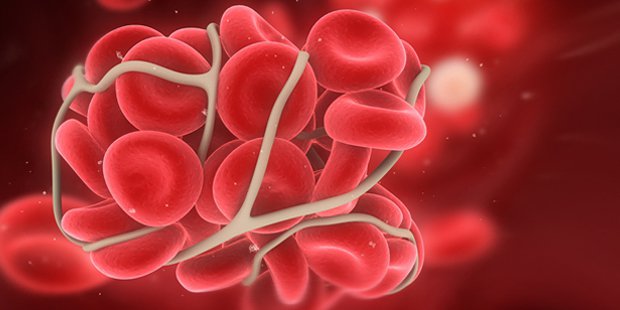Diagnosis and emergency treatment of acute renal failure
This is an automatically translated article.
Acute kidney failure occurs when the kidneys lose the ability to filter waste products from the blood, causing toxic substances to accumulate and an imbalance of chemicals in the blood. Acute kidney failure is common in people being treated in the hospital, especially those who are seriously ill and need special care. Acute kidney failure can be fatal and requires aggressive treatment.
1. Symptoms of acute kidney failure
Acute kidney failure has the following signs and symptoms:
Decreased urine output, although sometimes urine output remains normal; Water retention, causing swelling in the legs, ankles, or feet; Shortness of breath; Tired; Confusion; Nausea; Attenuate; Irregular heartbeat; Chest pain or feeling heavy in the chest; Seizures or coma in severe cases Sometimes acute kidney failure has no signs and is only discovered incidentally through laboratory tests when the patient goes to the doctor for another medical condition.

Dấu hiệu phù chân do cơ thể giữ nước
2. Causes of acute kidney failure
Acute kidney failure can occur when:
The patient has medical conditions that slow blood flow to the kidneys; Kidney injury; The kidney's ureter is blocked and waste can't get out of the body when urinating. Reduced blood flow to the kidneys
Diseases and conditions that can slow blood flow to the kidneys and lead to kidney injury include:
Blood or fluid loss; Blood pressure medication; Heart attack ; Heart disease; The infection; Liver failure ; Use aspirin, ibuprofen, naproxen sodium; a severe allergic reaction (also called anaphylaxis); Severe burns ; Severe dehydration; Kidney damage.

Bệnh tim có thể ảnh hưởng đến lưu lượng máu tới thận
These diseases, conditions and agents can damage the kidneys and lead to acute kidney failure :
Blood clots in the veins and arteries in and around the kidney; Accumulation of cholesterol blocks blood flow in the kidneys; Glomerulonephritis ; Hemolytic uremic syndrome; Lupus erythematosus, which is an autoimmune immune system disorder that causes glomerulonephritis; Certain drugs, such as some chemotherapy drugs, antibiotics, and contrast agents used in imaging techniques; Scleroderma, a group of rare diseases that affect the skin and connective tissues; Thrombocytopenia bleeding; Toxic substances such as heavy metals, alcohol, cocaine; Breaking down muscle tissue (rhabdomyolysis) leading to kidney damage due to toxins from muscle tissue destruction; Disruption of tumor cells (tumor lysis syndrome), resulting in the release of toxins that can cause kidney damage.

Sự hình thành của các cục máu đông quanh thận
Urinary obstruction in the kidney
A number of diseases and conditions that prevent urine from leaving the body can lead to acute kidney injury including:
Bladder cancer; Blood clots in the urinary tract; Cervical cancer ; Colon cancer; Prostate; Kidney stones ; Damage to the nerve that controls the bladder; Prostate cancer .

Sỏi thận có thể ngăn nước tiểu ra khỏi cơ thể
3. Diagnosis of acute renal failure
If the patient has signs and symptoms that indicate acute kidney failure, the doctor may order a number of tests and perform a procedure to confirm the diagnosis of acute kidney failure, including:
Measurement of urine output . Measuring your urine output over 24 hours can help your doctor determine the cause of your kidney failure. Urine test. Analyze the urine sample to look for unusual signs of kidney failure. Blood tests. A blood test to measure if urea and creatinine levels are rising rapidly - these are two substances used to measure kidney function. Diagnostic imaging techniques. Imaging techniques such as ultrasound and computed tomography may be used to help the doctor see the kidneys. Kidney biopsy. In some cases, the doctor may order a kidney biopsy to find out the cause of kidney failure.
4. Treatment of acute renal failure emergency resuscitation
To manage acute renal failure emergency resuscitation, patients usually need to stay in the hospital and how long they stay in the hospital depends on the cause of the acute kidney failure and how quickly the kidneys recover.
Treatment of the causes of acute kidney failure
Treatment of acute kidney failure includes identifying the disease or injury that initially damaged the kidneys. Treatment options depend on the cause of the kidney failure.
Treatment of complications until the kidney recovers
Besides, the doctor also performs treatment to prevent complications and allow the kidney time to recover, including:
Balance the amount of substances liquid in the blood. If acute kidney failure is caused by a lack of fluid in the blood, your doctor will treat it with intravenous fluids. In other cases, acute kidney failure is caused by too much fluid, leading to swelling in the hands and feet. In these cases, your doctor will use diuretics to cause your body to increase fluid excretion. Control blood potassium. If the kidneys don't filter potassium as they should, your doctor may prescribe calcium, glucose, or sodium polystyrene sulfonate (Kionex) to prevent a buildup of potassium in the blood. Because too much potassium in the blood can cause irregular heartbeat and muscle weakness. If blood calcium levels fall too low, your doctor will perform a calcium infusion. Dialysis to remove toxins from the blood. If toxins build up in your blood, you may need temporary hemodialysis — often simply called dialysis — to help remove toxins and excess fluid from your body while your kidneys recover. Dialysis can also help remove excess potassium from the body.

Bệnh nhân được lọc máu loại bỏ độc tố khỏi cơ thể tại Vinmec
Acute kidney failure often has no obvious symptoms and develops very quickly. You should have regular health check-ups to monitor whether your kidney function is good or not. This enables early detection and prompt treatment.
To register for examination and treatment at Vinmec International General Hospital, please contact the nationwide Vinmec Health System Hotline, or register online HERE.
References: mayoclinic.org; medicalnewstoday.com
MORE:
Acute kidney failure with high mortality Notes in the treatment of acute kidney failure How is acute kidney failure diagnosed and treated?
This article is written for readers from Sài Gòn, Hà Nội, Hồ Chí Minh, Phú Quốc, Nha Trang, Hạ Long, Hải Phòng, Đà Nẵng.





